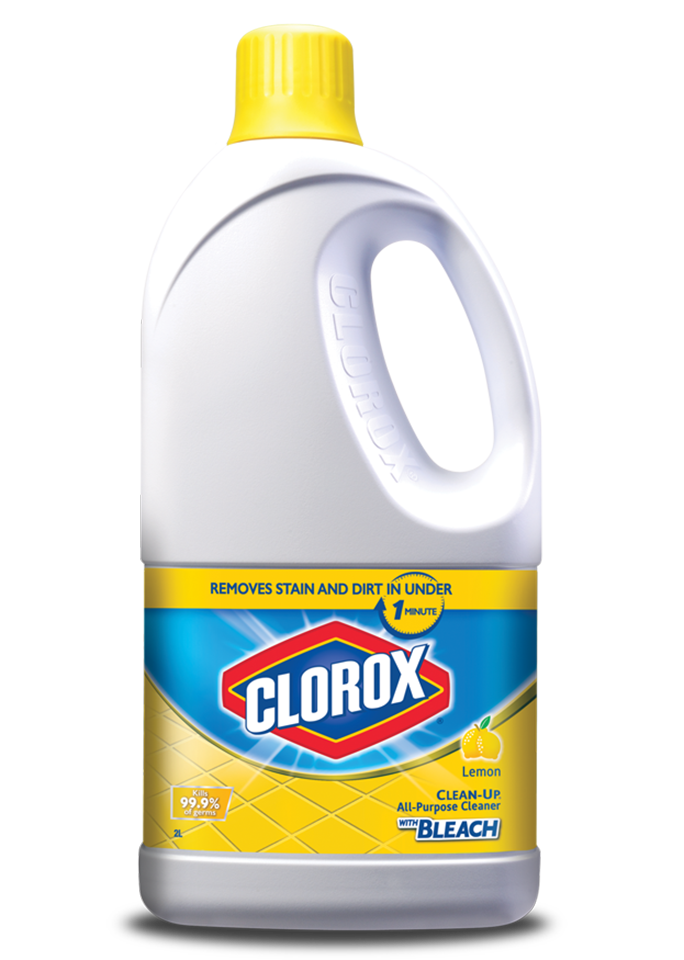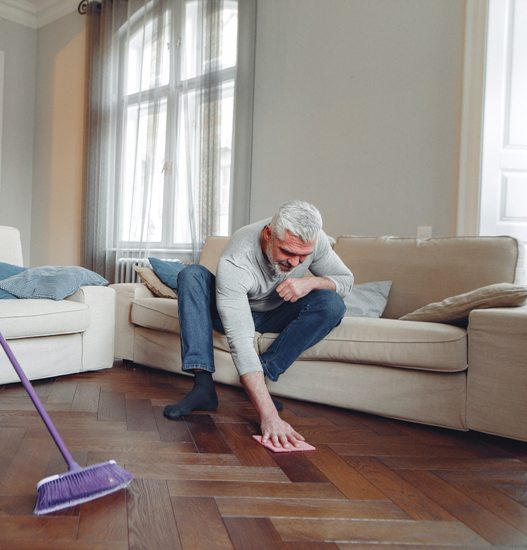Remember that time when your toddler spilled juice all over your sparkling clean vinyl floor? You grabbed the nearest bottle—Clorox—with the hope of swiftly eradicating the sticky mess. But before you go scrubbing, there’s a crucial question you need to ask: is Clorox safe for your vinyl floor?

Image: mromavolley.com
As a homeowner, maintaining the pristine look of your vinyl floors is essential. But cleaning them with harsh chemicals like bleach can be a double-edged sword. While it can effectively eliminate germs and stains, it might also damage the surface of your floor, leaving it dull and scratched. So, let’s delve into the world of vinyl floor cleaning and find out whether Clorox is your friend or foe.
Understanding Vinyl Floors and Their Cleaning Needs
Vinyl flooring is a popular choice for homeowners due to its affordability, durability, and ease of maintenance. These floors are made from synthetic materials, usually polyvinyl chloride (PVC), which are resistant to water and scratches. However, their resilience doesn’t mean they can withstand the onslaught of harsh chemicals.
The surface of vinyl floors is often coated with a protective layer known as the “wear layer.” This layer acts as a shield against scratches, stains, and fading. When you apply harsh chemicals like bleach or heavy-duty cleaners, the wear layer can be compromised. This can lead to:
- Dullness: The protective layer can become cloudy or dull, diminishing the shine of your floors.
- Scratches: The chemicals can weaken the protective layer, making the floor more susceptible to scratches.
- Fading: The color of your vinyl flooring can fade or become uneven due to the chemical action.
The Verdict: Can You Use Clorox on Vinyl Floors?
The short answer is: it’s generally not recommended to use Clorox on vinyl floors. While Clorox can effectively kill bacteria and germs, its harsh chemical composition can damage the protective wear layer on your vinyl flooring. This can lead to the aforementioned issues, resulting in an undesirable change in the appearance and functionality of your floors.
However, it’s essential to clarify that “Clorox” refers to a range of products. Some Clorox products are formulated for specific cleaning tasks and may contain different chemical compositions. It’s vital to check the product label carefully before using any Clorox product on your vinyl floors.
For instance, Clorox Disinfecting Wipes are typically safe for vinyl surfaces, as they are generally formulated with a milder bleach concentration. However, always test any cleaning product on an inconspicuous area of your floor before applying it to the entire surface. This will help you avoid any potential damage.
Safe Alternatives to Clorox for Vinyl Floor Cleaning
Fortunately, there are safer and more effective alternatives to bleach for cleaning your vinyl floors. These alternatives include:
- Vinegar: White vinegar is a natural disinfectant that is gentle on vinyl flooring. It can effectively remove dirt, grime, and even some stains. Simply mix equal parts vinegar and water in a spray bottle and apply it to your floor. Wipe clean with a damp cloth.
- Baking Soda: Baking soda is a mild abrasive that can help scrub away tough stains and dirt. Sprinkle baking soda on the stained area, let it sit for a few minutes, and then scrub with a damp cloth. Rinse thoroughly with clean water.
- Dish Soap: Using a few drops of gentle dish soap in warm water can create a cleaning solution that effectively removes dirt and grime without harsh chemicals.
- Commercial Vinyl Floor Cleaners: Look for cleaners specifically designed for vinyl floors. These cleaners are formulated to clean without damaging the protective wear layer.

Image: www.clairoliviawayman.com
Expert Tips for Maintaining Vinyl Floors
Besides choosing safe cleaning solutions, there are several crucial tips for maintaining the pristine look of your vinyl floors:
- Sweep or Vacuum Regularly: Regular sweeping or vacuuming picks up dust, debris, and dirt, preventing them from scratching the surface of your vinyl floor.
- Mop with a Damp Cloth: Avoid using excessive water when cleaning your vinyl floors. Too much water can seep beneath the tiles and cause buckling or warping. Mop with a damp cloth and dry the surface immediately.
- Use a Floor Mat: Place a floor mat at entryways to catch dirt and grime before they are tracked onto the floor. This helps prevent scratches and keeps your floors clean.
- Protect Against Sun Damage: Prolonged exposure to sunlight can cause fading and discoloration of vinyl flooring. Use blinds or curtains to minimize sun exposure.
When cleaning your vinyl floors, always follow the manufacturer’s instructions for care and maintenance. Additionally, it’s a good idea to periodically apply a vinyl floor polish to help protect the surface and enhance its shine.
Frequently Asked Questions (FAQ)
Q: Can I use Clorox on my vinyl plank floors?
A: It’s generally not recommended to use Clorox on vinyl plank floors. They often have a thinner wear layer than traditional vinyl floors, making them more susceptible to damage from harsh chemicals.
Q: What if I accidentally used Clorox on my vinyl floor?
A: Rinse the area thoroughly with clean water to neutralize the bleach and minimize damage. You might need to apply a vinyl floor polish to restore the shine and protect the surface.
Q: How often should I clean my vinyl floors?
A: Depending on your traffic levels, it’s recommended to sweep or vacuum at least once a week and mop with a wet cloth every two to three weeks.
Can You Use Clorox On Vinyl Floors
Conclusion
In conclusion, using Clorox on vinyl floors is not advised. While Clorox can effectively kill germs, its harsh chemicals can damage the protective wear layer, leading to dullness, scratches, and fading. Instead, opt for safer alternatives such as vinegar, baking soda, dish soap, or commercially available vinyl floor cleaners.
Remember, maintaining the pristine condition of your vinyl floors requires a careful approach. By following the tips and advice outlined in this guide, you can ensure that your floors stay clean, shiny, and protected.
Do you have any questions, tips, or tricks for cleaning vinyl floors? Share your thoughts in the comments below!



/GettyImages-173599369-58ad68f83df78c345b829dfc.jpg?w=740&resize=740,414&ssl=1)


